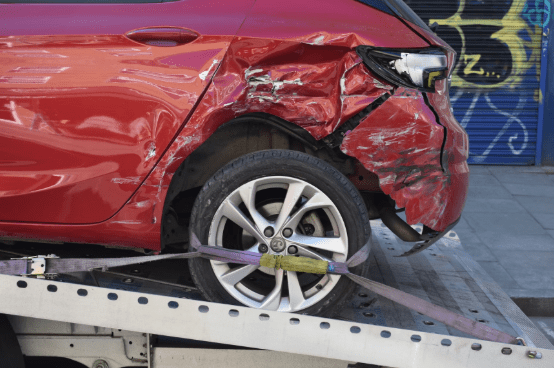
The Impact of Rideshare Accidents on Your Car Insurance Rates
The rise of rideshare apps has undoubtedly brought a lot of convenience to the world, but it’s also come with its share of drawbacks. For instance, both Uber and Lyft workers and private drivers are being impacted by rising car insurance rates due to the cost of accidents involving rideshare vehicles.
At The Scott Pryor Law Group, we understand how the impact of rideshare accidents on your car insurance rates can be frustrating, confusing, and perhaps most importantly, costly.
The Connection Between Rideshare Activities and Premium Increases
So, how does driving for Uber increase insurance?
Insurance companies recognize that driving for Uber and Lyft is not the same thing as your regular commute. Rideshare drivers spend significantly more time on the road, traversing busy areas with unpredictable traffic and passengers they don’t know. More time behind the wheel equals greater risk of an accident, and that’s reflected in premiums.
Rideshare drivers are estimated to pay around 28% more for insurance than non-rideshare drivers. However, even those non-rideshare drivers may still be paying the toll for rideshare accidents. With insurance companies paying out more claims involving rideshare vehicles, they offset those losses by increasing premiums across the board.
Rideshare Coverage Periods and Their Insurance Implications
Rideshare coverage can be a bit confusing, as the policy that applies in an accident depends on when the accident occurs. There are three “coverage periods” for rideshare drivers, and each has different insurance implications:
- The driver has the app on and is waiting for a ride request.
- The driver has accepted a ride and is heading to the passenger
- The passenger is in the vehicle, and the ride is in progress
If an accident occurs during the first period, the driver’s personal auto insurance policy applies. If an accident occurs during the second or third period, Uber or Lyft’s rideshare commercial insurance policy applies. Issues can arise during the first period if the policyholder doesn’t carry insurance for Uber or Lyft drivers specifically, as many insurance companies frequently try to deny coverage in rideshare accidents.
What Happens to Insurance Rates After a Rideshare Accident
If a rideshare driver is involved in an accident, their insurance rates may increase based on several factors, including:
- Who was at fault
- The severity of damage or injuries
- The amount paid out by insurance
- The coverage period
The rideshare driver’s premiums are almost certain to rise in an accident, particularly if they don’t have the right coverage and they’re found to be at fault. It’s often just a matter of how much they rise. The above factors generally dictate the answer to that question.
Strategies to Minimize Insurance Rate Increases
If you’re a rideshare driver or thinking of becoming one, there are some ways to protect your premium and still provide your car with the coverage it needs:
Choose the Right Rideshare Coverage
Standard auto insurance policies may not be enough if you get into a rideshare accident. Insurers are increasingly looking to deny claims when a vehicle’s operator was driving for a rideshare company. Talk to your insurer about a policy that protects you during all three coverage periods.
Gather Ample Evidence After an Accident
If an accident does occur, you’ll need strong evidence that you were not at fault to keep your premiums from rising. Report the accident to the police, take photos and videos of the accident scene, collect contact info of the involved parties, and gather witness statements.
Be Mindful When Talking to Insurers
The insurance companies will try to get you to say something they can use against you when justifying your premium increase. Never admit fault, stick to the straight facts of the situation, and don’t give any recorded statements without legal advice.
Shop Around Annually
If your rates still increase, shop around and compare quotes. Some insurers handle rideshare coverage more affordably than others, and some may offer a better deal to entice you to switch to them.
What to Do After a Rideshare Accident
The steps you take after a rideshare accident can affect your claim and your rates. Be sure to do the following:
- Call 911: Report the incident to police. This will create an official document containing key details of the accident that can show you were not at fault.
- Document the Scene: Take photos and videos of vehicle damage, vehicle positions, accident debris, skid marks, traffic signs and signals, and road and weather conditions.
- Exchange Information: Collect names, contact information, driver’s license and plate numbers, and insurance details of all involved parties, as well as rideshare documentation from the involved Uber or Lyft driver, if that was someone other than you.
- Call a Lawyer: Don’t try to tackle these complicated cases on your own. An experienced attorney can help protect your rights and keep your premiums from rising when someone else was responsible for the accident.
Challenging Insurance Rate Increases and Denials
If your insurance rate spikes after a rideshare accident, particularly when you weren’t at fault, you have options:
- Request a Detailed Explanation: Ask your insurer why the rate increased and challenge any inaccuracies in your file. It helps to maintain thorough, organized documentation of the incident so you can back your challenges up with hard evidence.
- File a Complaint: If you believe your rate hike was unjust and your insurer refuses to reduce it, you can file a formal complaint by contacting the Georgia Office of Insurance and Safety Fire Commissioner.
- Dispute Denied Coverage: If your insurer denies a claim based on your rideshare activity, consult with an attorney to dispute the denial and pursue compensation through other means.
Contact The Scott Pryor Law Group Today
If you’ve been involved in a rideshare accident or are facing a premium hike that doesn’t make sense, The Scott Pryor Law Group can help. We understand the legal and insurance challenges that rideshare driving presents to both the drivers themselves and those that share the road with them, and we’re ready to protect your rights when you need it most. Contact us today for your free consultation.
Photo by Usman Malik on Unsplash










